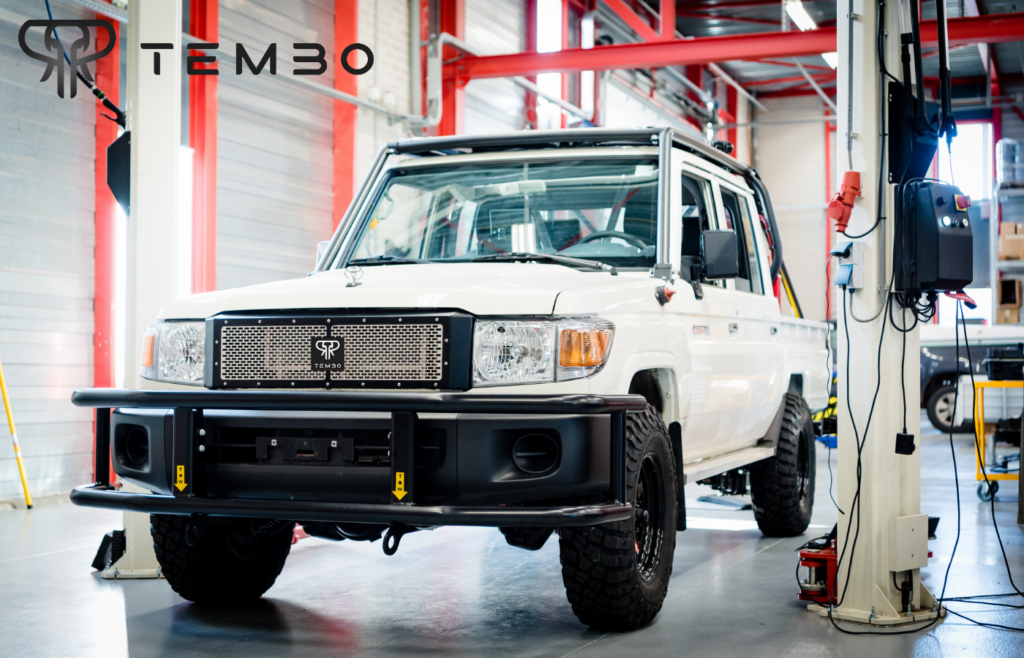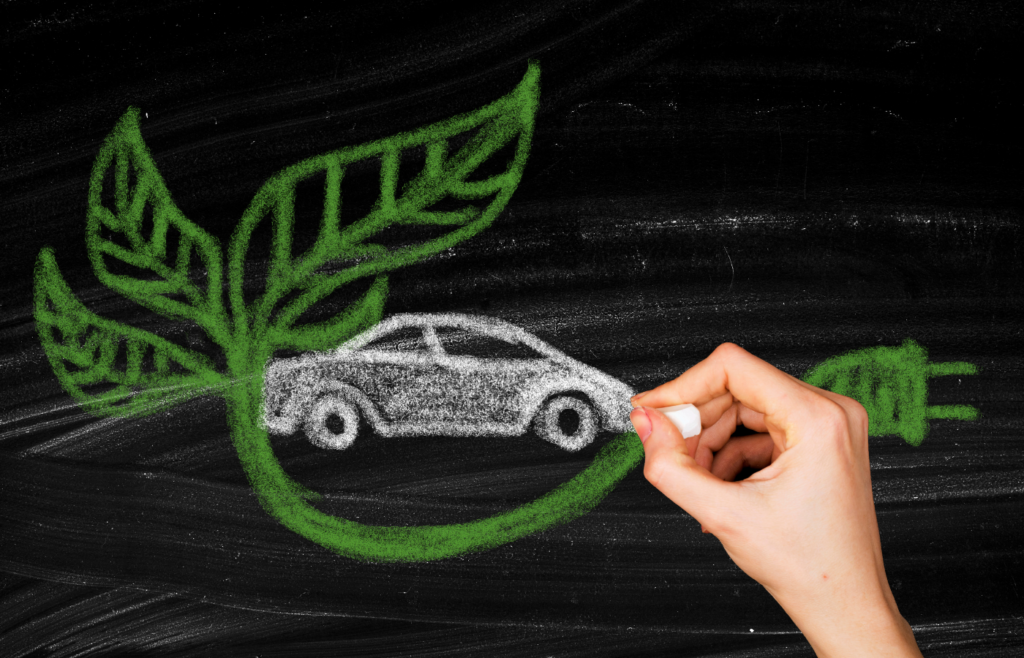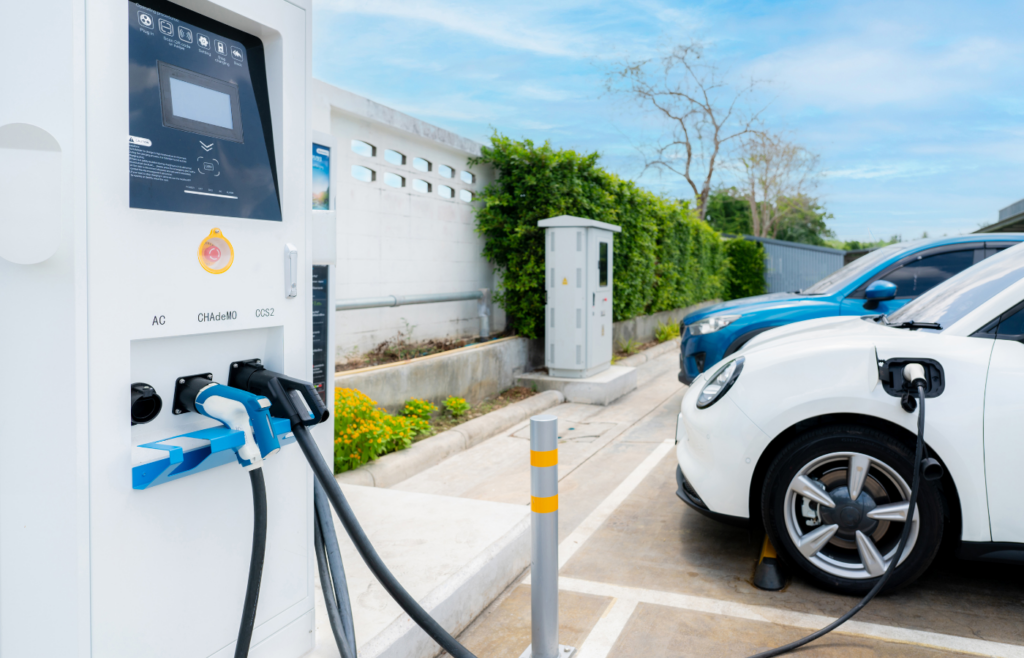
Converting second-hand vehicles into electric provides consumers with a more sustainable way to reduce carbon emissions in the transportation sector. Not only does it help extend the lifespan of existing vehicles, but it also offers a multitude of economic and environmental benefits.
In this Tembo Insight, we explore the potential of turning second-hand vehicles into electric. Let us find out what positive impacts it can have on businesses and the environment.

Converting second-hand vehicles into electric offers a multitude of economic advantages, making it an attractive proposition for savvy consumers and forward-thinking businesses.
EVs have significantly lower operating costs compared to traditional petrol or diesel vehicles. With electricity prices typically considerably cheaper than fossil fuels, EV owners enjoy substantial savings on fuel expenses over the lifetime of their vehicles.
EVs boast simpler mechanical systems with fewer moving parts compared to internal combustion engine vehicles. This translates to lower maintenance costs, as EV owners save money on routine services like oil changes, transmission servicing, and exhaust system repairs.
Converting a second-hand vehicle into electric can extend its lifespan, allowing owners to maximize their investment. Electric drivetrains offer greater durability and reliability, providing a longer-lasting transportation solution.
Well-maintained second-hand electric vehicles can retain their value better than gasoline or diesel counterparts. As the demand for EVs continues to rise, owners may enjoy higher resale prices when selling their converted electric vehicles in the future.
Many governments incentivise the adoption of EVs through tax credits, rebates, or grants. By converting a second-hand vehicle into an electric one, owners may qualify for these financial incentives, reducing the upfront costs of electrification.
Electric vehicles are often exempt from emissions-based fees like congestion charges or tolls, implemented by cities to reduce pollution. Converting a second-hand vehicle into electric can save owners money on these fees, particularly in urban areas with strict emission regulations.
Transitioning to electric vehicles reduces dependence on imported fossil fuels, promoting energy independence and resilience to fuel supply disruptions. Investing in electric transportation supports local economies and reduces exposure to volatile oil markets.
The shift towards EVs stimulates economic activity and creates jobs in industries related to EV manufacturing, infrastructure development, and renewable energy production. Converting second-hand vehicles into electric contributes to the growth of the green economy and supports local employment opportunities in the Power sector.
The economic benefits of electric vehicle conversion extend to avoiding environmental costs. By reducing greenhouse gas emissions, air pollution-related healthcare expenses, and environmental cleanup costs, electrifying transportation delivers long-term economic value to society.

Beyond the realm of economics, the conversion of second-hand vehicles into electric holds immense promise for environmental conservation and sustainability.
EVs produce zero tailpipe emissions when powered by electricity from renewable sources. By converting second-hand vehicles into electric, carbon dioxide emissions from transportation are significantly reduced, helping to mitigate climate change.
Eliminating tailpipe emissions from petrol and diesel vehicles improves local air quality, reducing harmful pollutants like nitrogen oxides (NOx), particulate matter (PM), and volatile organic compounds (VOCs). Converting second-hand vehicles into electric contributes to cleaner and healthier air in urban areas, benefiting public health and quality of life.
EVs operate quietly compared to internal combustion engine vehicles, which emit noise from engines and exhaust systems. By converting second-hand vehicles into electric, noise pollution from transportation is reduced, creating quieter and more peaceful urban environments.
Electric vehicles reduce the demand for finite fossil fuels like petrol and diesel, which have significant environmental impacts associated with extraction, refining, and combustion. Converting second-hand vehicles into electric helps conserve fossil fuels for future generations and reduces dependence on imported oil.
EVs use batteries made from materials like lithium, cobalt, and nickel, mined from the earth's crust. By recycling and repurposing batteries in converted second-hand vehicles, the need for raw material extraction is minimized, reducing the environmental impact of mining activities and preserving natural habitats.
Electric vehicles can be charged using electricity generated from renewable sources like solar, wind, and hydroelectric power. By converting second-hand vehicles into electric and powering them with clean energy, the environmental footprint of transportation is further reduced, supporting the transition to a low-carbon energy system.
EVs produce less waste heat compared to internal combustion engine vehicles, which dissipate heat through engines and exhaust systems. By converting second-hand vehicles into electric, the heat island effect in urban areas is mitigated, reducing energy consumption for cooling and improving urban microclimates.
Electric vehicles have lower environmental impacts throughout their lifecycle, including reduced habitat destruction, water pollution, and ecosystem degradation. Converting second-hand vehicles into electric ones reduces the ecological footprint of transportation.
Converting second-hand vehicles into electric serves as a tangible example of sustainable living and responsible consumption. Adopting electric transportation solutions allows individuals and businesses to demonstrate their commitment to environmental stewardship, inspiring others to follow suit and fostering a culture of sustainability and collective action.

Converting second-hand vehicles into electric offers a win-win solution for both the economy and the environment. By extending the lifespan of existing vehicles, stimulating economic growth, and reducing emissions, electric conversions offer a pathway towards a more sustainable transportation system.
With concerted efforts and investments from policymakers, manufacturers, and consumers, aging vehicle fleets can be transformed into a clean, efficient, and environmentally friendly transportation system, paving the way for a brighter future for generations to come.
Tembo offers EV conversion kits designed to breathe new life into second-hand vehicles, transforming them into efficient, eco-friendly transportation solutions. Our cutting-edge technology and expertise in electric mobility allow our customers to embrace the future of transportation while maximising the value of their existing vehicles.
Tembo EV conversion kits offer a flexible and cost-effective solution for transitioning to electric drive. By retrofitting second-hand vehicles with electric drivetrain, owners can enjoy lower operating costs, reduced emissions, and enhanced performance, all while extending the lifespan of their beloved vehicles.
At Tembo, we are committed to driving positive change and accelerating the adoption of sustainable transportation solutions. Our EV conversion kits represent a significant step toward a greener, more sustainable future, where every vehicle on the road contributes to a cleaner, healthier planet.
For more news and insights, stay tuned to the Tembo website.

© Copyright 2024 Tembo e-LV BV | Privacy Policy